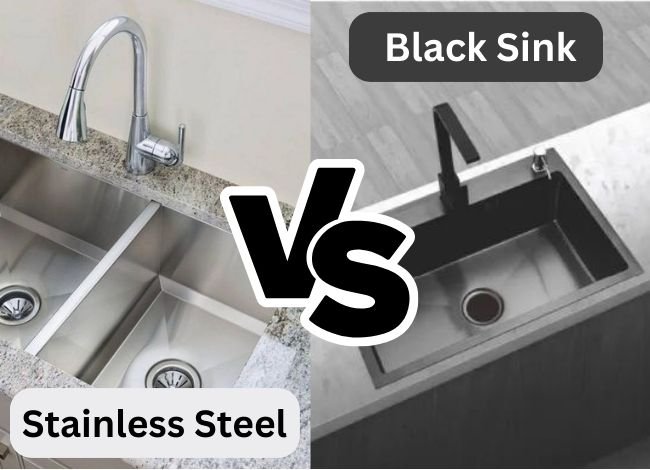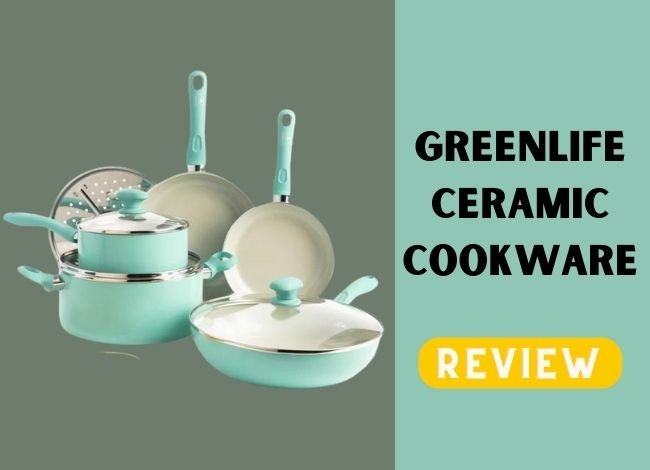One key choice to make when considering the design and functionality of a kitchen is the sink selection. Two popular options that stand out are black sinks and stainless steel sinks, each offering unique features and aesthetic appeal. Black sinks, known for their bold and modern look, can create a striking contrast in a kitchen, especially when paired with lighter countertops or cabinets. They often come in materials like granite composite, offering durability and resistance to heat and scratches.
On the other hand, stainless steel sinks are revered for their classic, timeless appearance and their practicality. Stainless steel is known for its resistance to rust and stains, making it a favorite in many households. It’s also lighter than granite or composite materials, making installation easier. Both types of sinks have their own maintenance needs and visual impacts, so choosing between a black sink and a stainless steel sink is a significant one in the context of kitchen design.
What is a Stainless Steel Sink?
A stainless steel sink is a popular choice for kitchens due to its durability, ease of maintenance, and sleek appearance. Made from an iron alloy with a minimum of 10.5% chromium, stainless steel is known for its resistance to rust and corrosion. The chromium forms a passive layer of chromium oxide on the surface, which protects the material from stains and rust. The higher the chromium content, the better the corrosion resistance. Nickel is often added to improve corrosion resistance and give the steel a shiny, silver finish.
The gauge of stainless steel refers to its thickness, with lower numbers indicating thicker steel. Thicker gauges are less prone to denting and noise but are more expensive. Most household sinks range from 16 to 22 gauge. Stainless steel sinks come in various styles, including top-mount or drop-in sinks, under-mount sinks, and farmhouse or apron-front sinks. They can be single or double-bowled, deep or shallow. The finish can vary from a mirror shine to a matte or brushed look. A well-maintained stainless steel sink can last for decades, making it a cost-effective and long-lasting choice for any kitchen.
Stainless Steel Kitchen Sinks: Which Type is Best?
Choosing the best type of stainless steel sink for your kitchen depends on your usage, budget, and design preferences. The most common types are:
- Top-Mount or Drop-In Sinks: These are the easiest to install as they simply drop into a hole in the countertop. They have a visible rim and are compatible with most countertop materials.
- Undermount Sinks: These are mounted underneath the countertop, providing a seamless look and making it easier to wipe debris from the countertop directly into the sink. They are typically more expensive and require solid surface countertops like granite or marble.
- Farmhouse or Apron-Front Sinks: Known for their large, deep basins and exposed front, these sinks make a statement in any kitchen. They require a unique cabinet for installation.
- Single vs. Double Bowls: Single-bowl sinks offer more space for washing large items, while double bowls allow for multitasking, like washing dishes on one side and rinsing on the other.
When considering gauge, a lower gauge means thicker steel, which is more durable and less noisy. A 16 to 18-gauge is ideal for most kitchens. The finish also matters; a brushed or satin finish hides water spots and scratches better than a mirror finish. Finally, consider the soundproofing – quality sinks often have sound-absorbing pads or coatings.
Pros and Cons of a Stainless Steel Sink
Pros:
- Durability: Stainless steel sinks are renowned for their durability. They are resistant to chipping, cracking, and staining, which makes them a long-lasting option for any kitchen. The material’s resilience to heat and rust is a significant advantage, especially in a high-use area like a kitchen.
- Ease of Maintenance: Cleaning a stainless steel sink is straightforward. It doesn’t require special cleaners; regular soap and water are usually sufficient. This ease of maintenance helps in keeping the sink hygienic and attractive.
- Versatility in Design: Stainless steel sinks come in various styles and finishes, fitting seamlessly into most kitchen designs. Whether you have a modern or traditional kitchen, a stainless steel sink can complement your space effectively.
- Cost-Effectiveness: Compared to other materials, stainless steel sinks are generally more affordable. This makes them a popular choice for those who want durability and style without a high price tag.
Cons:
- Scratching and Water Spots: While stainless steel is durable, it’s prone to scratching and can show water spots. Over time, these scratches and spots can detract from the sink’s overall appearance.
- Noise: Stainless steel sinks can be noisier than other materials. When dishes or utensils are moved in the sink, they can produce a louder sound, which some may find unpleasant.
- Can Dent: Stainless steel can dent under significant force. Heavy pots or pans dropped in the sink might cause dents or warping.
- Aesthetic Appeal: For some, the metallic look of stainless steel might not be as warm or inviting as other materials. It can also clash with specific kitchen aesthetics.
Are Stainless Steel Sinks a Bad Idea?
While stainless steel sinks are popular, there are some considerations to keep in mind. The primary concern is scratching and denting. Stainless steel can scratch more quickly than other materials and lower gauge sinks can dent if heavy objects are dropped in them. However, regular cleaning and careful use can minimize these issues.
Another consideration is noise. Water hitting a lower gauge sink’s thin metal can be noisier than other materials like cast iron. This can be mitigated by choosing a thicker gauge or a sink with built-in soundproofing.
Stainless steel also shows water spots and fingerprints, especially on shinier finishes. Regular wiping and cleaning are required to maintain its appearance. However, its excellent resistance to heat and stains balances this, making it a hygienic choice for the kitchen.
Lastly, while stainless steel sinks have some drawbacks, they remain a popular choice due to their durability, affordability, and sleek look. Choosing the right type, gauge, and finish, and with proper maintenance, a stainless steel sink can be a practical and stylish addition to any kitchen.
Black Kitchen Sinks
Black kitchen sinks have emerged as a popular choice in contemporary interior design. Their sleek and sophisticated appearance can add a dramatic flair to any kitchen, fitting well with a variety of color schemes and styles. Beyond aesthetics, black sinks can be practical too. They are known for hiding water spots and stains better than lighter-colored sinks, reducing the visible signs of wear and tear.
The variety of materials available for black kitchen sinks further broadens their appeal. Options range from black stainless steel, which offers a modern look and is highly durable, to composite granite, known for its resistance to heat, scratches, and chips. The choice of material can significantly affect the sink’s longevity and maintenance needs. Additionally, black sinks come in different finishes – matte or glossy, each contributing differently to the kitchen’s overall look.
However, it’s essential to consider the potential downsides. Black kitchen sinks can show limescale and hard water stains more prominently, especially in areas with high mineral content water. Regular cleaning and maintenance are crucial to keeping them looking pristine. When choosing a black kitchen sink, it’s vital to balance the aesthetic appeal with practical considerations like maintenance and compatibility with your kitchen’s design theme.
Black Kitchen Sinks: Which Material is Better?
The choice of material is crucial when selecting a black kitchen sink, as it influences both the sink’s appearance and functionality. The most common materials for black sinks are stainless steel, granite composite, and cast iron.
- Black Stainless Steel sinks are known for their modern look and durability. They resist rust and stains and maintain their appearance over time. However, they can be prone to scratches, and the black coating may wear off with rough usage.
- Granite Composite: This material blends granite stone dust and acrylic resins. It’s incredibly durable, and resistant to chips, scratches, heat, and fading. The uniform color throughout also means that scratches or chips are less noticeable. However, it can be more expensive than other options.
- Cast Iron: Cast iron sinks coated with a black enamel finish offer a classic and timeless look. They are extremely durable and resistant to damage. However, they require regular maintenance to prevent enamel chipping and are heavier, needing robust cabinet support.
Each material has its unique advantages and drawbacks. Stainless steel is lightweight and modern, granite composite is extremely durable and less prone to wear, and cast iron offers a classic aesthetic and longevity. The best choice depends on your budget, kitchen usage, and style preferences.
Pros and Cons of a Black Sink
Pros:
- Aesthetic Appeal: Black sinks offer a sleek, modern look that can be a striking addition to any kitchen. They provide a bold contrast, especially in kitchens with lighter color schemes, making a stylish statement.
- Hides Stains and Water Spots: Unlike lighter-colored sinks, black sinks are more forgiving when it comes to showing stains and water spots. This can keep the sink looking cleaner and more presentable between washes.
- Variety of Materials: Black sinks come in a range of materials, including granite composite, quartz, and even enameled cast iron, offering a variety of choices in terms of durability and texture.
- Heat and Stain Resistance: Many black sinks are made from materials that are resistant to heat and stains, adding to their practicality in a busy kitchen.
Cons:
- Water Spots and Calcium Deposits: While they hide stains well, black sinks can show more water spots and calcium deposits than lighter ones, especially in areas with hard water.
- Scratches Can Be Visible: Scratches can be more noticeable on a black sink, especially if the surface is glossy. Over time, these scratches can detract from the sink’s overall look.
- Limited Design Compatibility: Black sinks can be a design statement, but they may not seamlessly complement every kitchen style. They are best suited for modern or contemporary settings and might look out of place in more traditional kitchens.
- Cost: Depending on the material, black sinks can be more expensive than traditional stainless steel, making them a higher investment for your kitchen.
Comparison Table
| Feature | Black Sink | Stainless Steel Sink |
|---|---|---|
| Appearance | Modern and stylish, variety in matte or glossy finishes | Classic look, matches with most decors |
| Material Durability | Generally made from granite or quartz composites, highly durable | Very durable, typically made from steel alloys |
| Maintenance | Hides water spots and stains better, requires regular cleaning for matte finishes. | Shows water spots and fingerprints, easier to clean |
| Heat Resistance | High resistance to heat and thermal shock | Good resistance to heat, but can discolor with extreme heat |
| Scratch Resistance | Resistant to scratches, darker color can make them less noticeable | Less resistant to scratches, but scratches can be buffed out |
| Cost | Typically more expensive than stainless steel options | Generally more affordable than black sinks |
| Sound Dampening | Good sound absorption due to material density | Varies; higher quality sinks have better sound dampening |
Is Black Kitchen Sinks a Bad Idea?
While black kitchen sinks can be an elegant and stylish addition to any kitchen, there are several factors to consider before deciding if they are the right choice for your home.
The most significant advantage of black kitchen sinks is their visual appeal. They offer a bold, striking contrast in most kitchen designs and can serve as a focal point. They also tend to hide food residue and minor stains better than lighter sinks.
However, there are drawbacks. In areas with hard water, black sinks can show limescale and mineral deposits more clearly, requiring frequent cleaning to maintain their appearance. They might also require specific cleaning products to avoid damaging the surface, particularly if the sink is made of a material like matte-finished granite composite or black stainless steel.
Additionally, if the quality of the black finish is not high, it can fade or become patchy over time, especially in cheaper models. This can lead to an uneven look that may detract from the sink’s original aesthetic appeal.
In conclusion, black kitchen sinks are not inherently a bad idea, but their suitability depends on your personal preferences, lifestyle, and willingness to maintain them. It’s essential to weigh the aesthetic benefits against the potential for increased maintenance and care requirements.
Differences Between Stainless Steel and Black Kitchen Sinks
Aesthetic Appeal and Design Versatility
Stainless steel sinks have a classic, timeless appeal that fits well with many kitchen styles, from modern to traditional. Their shiny, reflective surface can brighten a kitchen and create a clean, streamlined look. Stainless steel is also versatile in design, coming in various shapes and sizes, and can be customized to suit specific preferences.
On the other hand, black kitchen sinks offer a bold and contemporary aesthetic. They make a strong design statement and can serve as a focal point in the kitchen. Black sinks can complement various color palettes, especially in modern or minimalist kitchens where contrast is a key design element. They are often available in matte or gloss finishes, providing options to align with different interior styles.
Durability and Maintenance
Stainless steel sinks are renowned for their durability. They are resistant to heat, stains, and most forms of damage, including dents and scratches. However, they can show water spots and fingerprints more quickly, requiring regular cleaning to maintain their shine. The quality of stainless steel varies, and higher-grade steel offers better resistance to corrosion and rust.
Black kitchen sinks are also highly durable, particularly those made from composite materials like granite or quartz. They are less prone to showing water spots and fingerprints, making them easier to keep looking clean. These sinks are generally resistant to heat, stains, and scratches, but the exact resistance level can depend on the material and quality. Some black sinks can be susceptible to fading or discoloration if exposed to direct sunlight over time.
Installation and Compatibility with Countertops
Stainless steel sinks are relatively lightweight and easy to install. They can be mounted in various ways: top-mounted, under-mounted, or flush-mounted, offering flexibility in design and compatibility with most countertop materials. However, the lightweight nature can sometimes lead to noise issues, such as when dishes are being washed, although this can be mitigated with sound-absorbing pads.
Black kitchen sinks, especially those made from composite materials, tend to be heavier. This can make installation more challenging and may require additional support, particularly for under-mount configurations. They are compatible with a wide range of countertop materials, offering a sleek integration with the work surface. The weight and construction of black sinks often result in quieter use compared to lighter stainless steel models.
Cost Considerations
The cost of stainless steel sinks can vary widely based on the steel gauge (thickness) and the overall quality. Generally, they are more affordable than their black counterparts, making them a popular choice for budget-conscious homeowners. Higher gauge stainless steel sinks, which are thinner, tend to be less expensive but may not offer the same durability and resistance to dents as lower gauge, thicker options. The cost also depends on the finish, brand, and additional features like sound-absorbing coatings or custom fittings.
Black kitchen sinks, especially those made from high-quality composite materials, are often priced higher than standard stainless steel sinks. The price reflects their durability, unique aesthetic appeal, and the advanced manufacturing processes involved in their creation. Composite sinks, combining materials like granite, quartz, and acrylic resins, provide a luxurious look and feel, adding to the cost. They are seen as a long-term investment in a kitchen’s design and functionality. The price can also vary depending on the brand, size, and specific design features.
Heat and Stain Resistance
Stainless steel sinks excel in heat resistance. They can withstand high temperatures without damage, which is particularly useful for kitchens where hot pots and pans are frequently placed in the sink. However, they can be prone to scratches and, if not properly maintained, may show signs of wear over time.
Black kitchen sinks, particularly those made from composite materials, also offer excellent heat resistance, often capable of withstanding temperatures that would damage other sink materials. Additionally, their non-porous surface makes them highly resistant to staining. Spills from common kitchen substances like wine, coffee, and beet juice can be easily wiped away without leaving any residue. This resistance to staining helps maintain the sink’s aesthetic appeal over time.
Environmental Impact and Sustainability
Stainless steel sinks have a strong environmental profile. Steel is one of the most recycled materials in the world, and many stainless steel sinks are made from a significant proportion of recycled material. These sinks can be completely recycled at the end of their lifecycle, reducing the environmental impact.
Black kitchen sinks made from composite materials are also considered sustainable. The materials used, such as quartz or granite, are abundant, and the manufacturing process often focuses on reducing environmental impact. However, the recyclability of these composite sinks at the end of their life cycle can vary depending on the specific materials and construction processes used.
Which is More Popular?
Popularity Trends: Stainless steel sinks have traditionally been more popular due to their versatility and durability. They fit into a wide range of kitchen designs, from traditional to contemporary. However, black kitchen sinks have been gaining popularity in recent years, especially in modern and minimalist kitchen designs. The choice often comes down to personal preference and the kitchen’s overall aesthetic. Stainless steel offers a timeless appeal, while black sinks provide a bold and modern touch.
Which Type of Stainless Steel Sink is Right for Your Kitchen?
When selecting a stainless steel sink for your kitchen, consider the following factors:
- Design and Size: Consider the size and configuration that fits your space and usage needs. Options include single bowl, double bowl, and even farmhouse styles.
- Gauge Thickness: The thickness of the stainless steel, measured in gauge, affects durability. Lower gauge numbers mean thicker, more durable sinks.
- Finish and Features: Choose a finish that complements your kitchen’s décor. Additional features like sound-dampening pads or built-in accessories can enhance functionality.
Conclusion
Both stainless steel and black kitchen sinks have their unique advantages. Stainless steel sinks offer a classic appeal and robust performance, suitable for a variety of kitchen styles. On the other hand, black sinks bring a modern edge and are great for those seeking a contemporary look. Your choice should align with your kitchen’s design, your personal style, and practical considerations such as maintenance and durability. Ultimately, both types can be excellent choices, depending on your specific kitchen needs and aesthetic preferences.
Frequently Asked Questions
- How durable are black sinks compared to stainless steel sinks?
- Answer: Black sinks, especially granite composite ones, are highly durable and resistant to scratches and stains. Stainless steel sinks are also durable but can easily scratch and show water spots.
- Do black sinks show water spots and fingerprints like stainless steel?
- Answer: Black sinks are generally better at hiding water spots and fingerprints than stainless steel, which can show smudges and spots more readily.
- Are there any special maintenance requirements for black sinks?
- Answer: Black sinks require regular cleaning with non-abrasive cleaners. They are less prone to showing water spots, but limescale can be more visible, requiring occasional removal.
- Can black sinks withstand high temperatures?
- Answer: Yes, most black sinks, especially those made from granite composite, can withstand high temperatures without damage.
- How do stainless steel sinks stand up to scratches and impacts?
- Answer: Stainless steel sinks can resist impacts well, but they are more prone to scratching. However, minor scratches can add to the patina over time.
- Are black sinks more expensive than stainless steel sinks?
- Answer: This can vary based on the brand and quality, but black sinks are generally more expensive than basic stainless steel options.
- Can I use harsh chemicals to clean stainless steel or black sinks?
- Answer: Harsh chemicals should be avoided for both types. Mild detergents are recommended for stainless steel sinks, while pH-neutral cleaners are best for black sinks.
- What styles and designs do black sinks come in compared to stainless steel?
- Answer: Both come in various styles, but black sinks are often more modern and sleek, while stainless steel sinks offer a more classic and versatile look.
- How do black and stainless steel sinks affect home resale value?
- Answer: Both can add value to a home. Black sinks can appeal to those looking for a modern kitchen, while stainless steel is a safe, classic choice that appeals to a broad audience.
- Are black sinks prone to chipping or cracking?
- Answer: High-quality black sinks, especially granite composite ones, are highly resistant to chipping or cracking. However, ceramic black sinks might be more prone to such damage compared to stainless steel.
- What environmental factors should I consider when choosing between these sink types?
- Answer: Stainless steel is often recyclable and thus can be a more eco-friendly choice. Depending on the material, black sinks may also be environmentally friendly, especially if made from natural or recycled materials.




